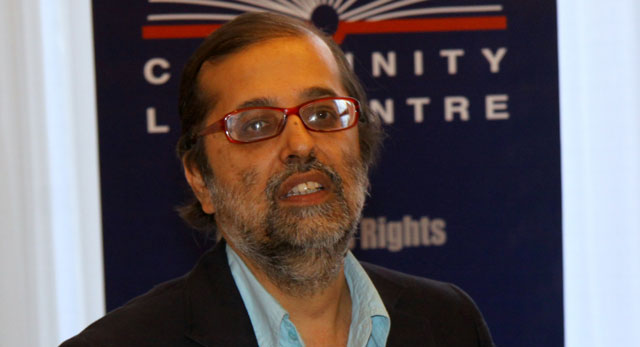
Communications minister Yunus Carrim is continuing to engage with warring broadcasters over set-top box control for digital terrestrial television, but government will make a final decision within the next three to four weeks even if final consensus can’t be reached.
Carrim told parliament on Tuesday that the department of communications will keep negotiations open for “another three or four weeks” in the hope that greater consensus can be reached. “We don’t want to proceed without more consensus. We want everyone to work together on this thing,” he said.
At the heart of the matter is whether the set-top boxes that government intends subsidising for poorer households will contain a control system based on encryption.
E.tv insists the control system is necessary to ensure the viability of free-to-air broadcasters in a market dominated by pay-television operator MultiChoice. It argues that it won’t be able to get access to the right quality of content to allow it to compete effectively if its broadcasts are sent over a system that is not encrypted.
However, MultiChoice, which owns DStv, is adamant that any subsidy of the boxes will amount to unfair competition, effectively subsidising the entry of new pay-TV competitors.
E.tv has denied it plans to use the free-to-air boxes to launch a pay-TV platform in competition with DStv. South Africans have to purchase the boxes to continue to receive terrestrial broadcasts after digital migration has been completed.
The SABC, which was initially in favour of set-top box control, is now firmly opposed to the idea — to the extent that it recently held a joint press conference with MultiChoice to lambaste cabinet’s endorsement in December of encryption in government-subsidised boxes.
Carrim told parliament he is actively involved in meetings with the protagonists. “I’m actively involved now because the facilitators say it has to be a political settlement,” he said.
Cabinet adopted a policy on the set-top boxes in December. In terms of that policy, broadcasters are “free to decide if they want to use control or not”, Carrim said.
“My predecessor [Dina Pule] and I tried our level best to get them to agree. There is now no prospect of getting them to agree,” Carrim said of the warring camps.
The minister has hit out at those who argue a court judgment handed down in December 2012 in favour of e.tv prevents government from setting policy on set-top box control.
“We received legal opinion consistently … that the e.tv court judgment of December 2012 simply said it’s not for the ministry to say who the vendor or supplier of the control system should be, what the form of the control system should be, etc. But it didn’t say we couldn’t have a policy.”
Carrim said government policy on the issue is “not prescriptive, it’s open”, but that despite this there is still no consensus in the broadcasting industry.
“I am now actively involved in having one on ones with the parties involved in the interests of the country. We need to ensure mobile operators don’t say they don’t have access to spectrum. We need to benefit the poor. This is not an issue about broadcasters. This is about jobs. We need this … for economic growth reasons.” — (c) 2014 NewsCentral Media




